│By Rhiannon Green, Gale Ambassador at the University of Durham│
The thought of researching and writing a dissertation is often a daunting prospect for any student, yet this is even more relevant for those studying in the Covid-19 era. As an English Literature student, I am heavily reliant on my university library, so when lockdown meant I was stuck at home nearly 300 miles away, I thought it would be impossible to get any work done – let alone start the research process for my dissertation. Closed libraries and remote learning have left many students clueless as to how to obtain relevant resources, yet this is where the Gale Reference Complete package comes in handy, with Gale Literature being especially useful for my own research and learning.
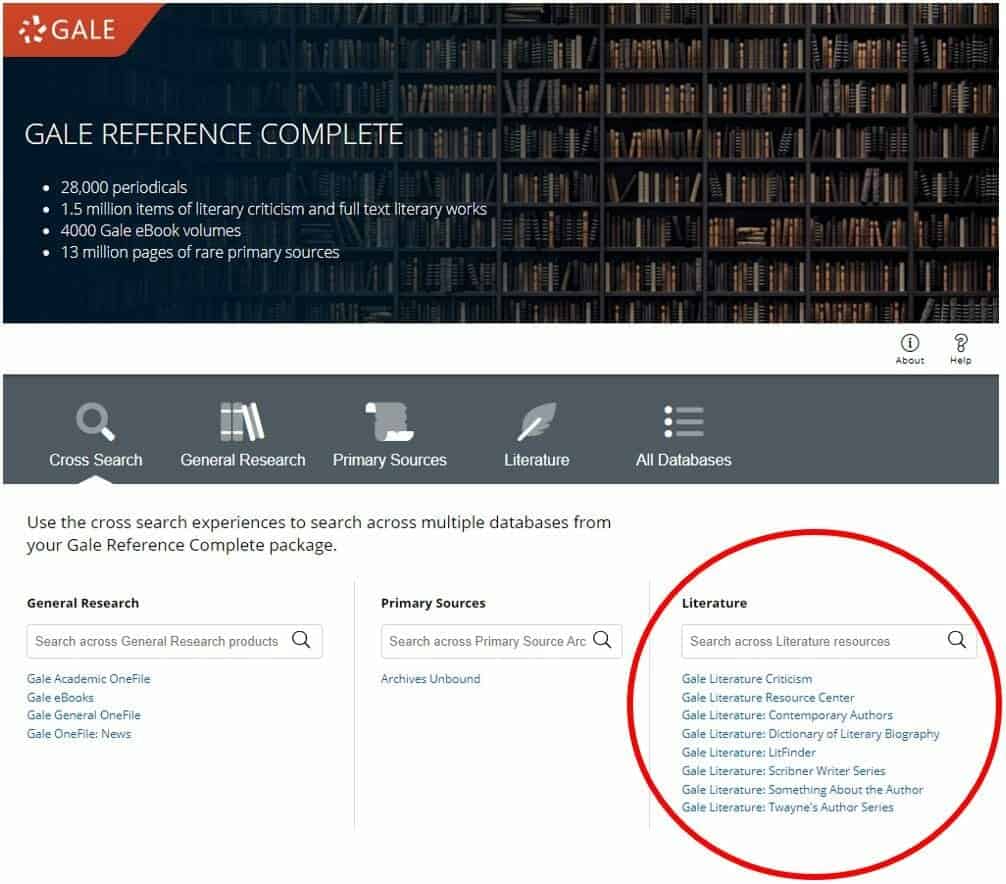
Using Gale Literature
Gale Reference Complete is easily accessible through your university website and simple to navigate. It includes various types of source, from secondary source articles, to the Archives Unbound series of primary sources, to Gale Literature Criticism. As I had decided to focus my dissertation on the works of Daphne du Maurier, the latter has been invaluable to my dissertation research, enabling me to find relevant critical articles, all from the comfort of my own bed! My dissertation was looking at Du Maurier’s use of the Gothic genre and how this applies to a spatial context. This is a somewhat niche topic, yet when I searched for “Daphne du Maurier” on Gale Literature, over 300 different results came up. Rather than having to sift through pages and pages of information, I was able to easily filter down the results to find what I needed, saving me a lot of time and headaches!
Finding Relevant Sources
Dissertation inspiration was only ever a few clicks away, as I quickly discovered a variety of sources using the Topic Finder feature. This allows you to easily filter through search results in a visual tile format, making it easy to browse through the sources related to a specific subject. By using the Topic Finder, I was able to find several sources which helped me with idea generation and narrowing down the scope of my research.
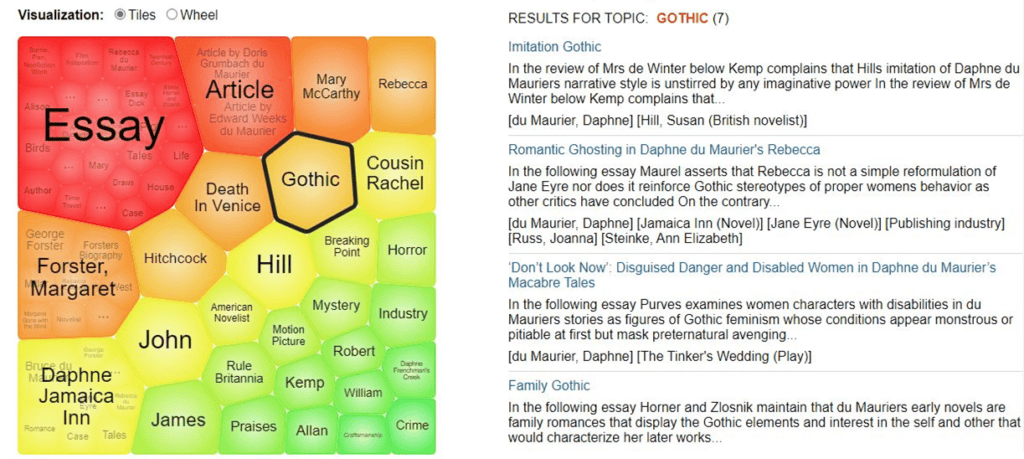
I have mainly used Gale Literature to search for literary criticism but have also come across other types of sources in Gale Reference Complete that have given me further contextual information, such as this biographical article published by British Heritage, one of the resources available in Gale General OneFile.
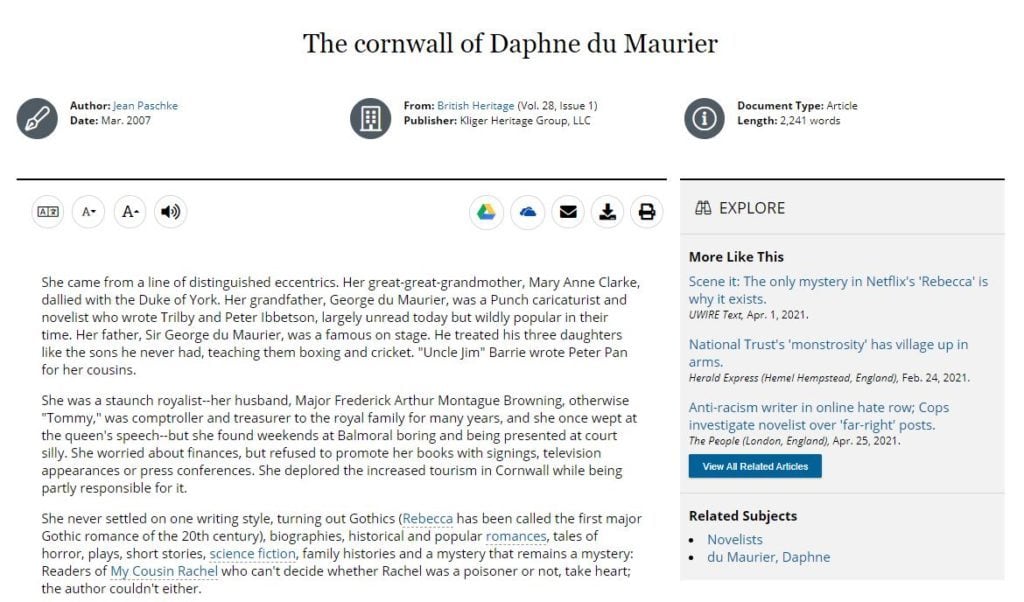
Daphne du Maurier’s use of the Gothic
Under the search results for the “Gothic” tile in the Topic Finder visualisation above, I discovered an academic essay by Avril Horner and Sue Zlosnik, two critics who ended up being central to the argument of my dissertation. This essay gave me a great overview of Du Maurier’s use of the Gothic genre, a perfect starting point for further research. Similarly, I found an article from the Journal of Gender Studies on Du Maurier’s short story Don’t Look Now (1971), specifically focusing on her use of the Horror genre. This encouraged me to think more broadly about the question of “genre,” using the articles to inform my argument and shape the direction in which I was taking my essay. Also, the fact that Du Maurier’s short stories have not yet been that well-studied in academia demonstrates the wide-ranging nature of Gale Literature, which has far more to offer than I could have ever imagined!
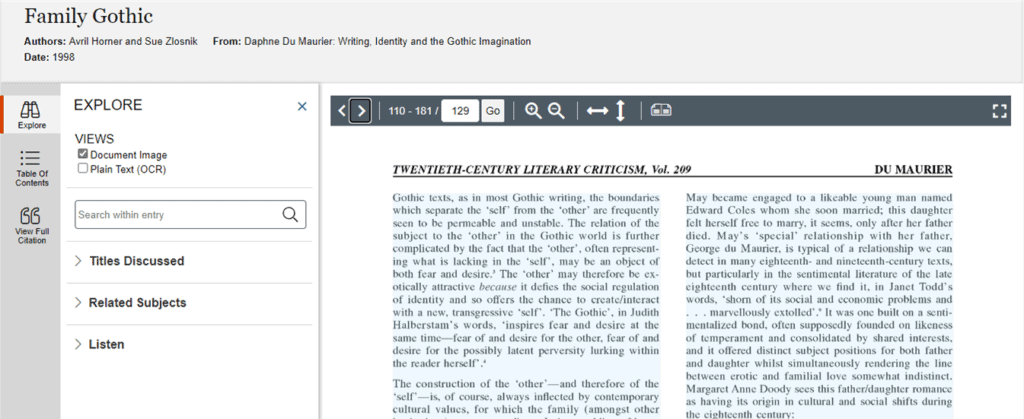
For the purposes of my dissertation, most of my research has been centred around Du Maurier’s well-known novel, Rebecca (1938). In using Gale Literature Criticism, I discovered several articles focusing on this text, specifically on Du Maurier’s use of different genres. Alison Light’s 1984 essay was particularly interesting, with Light claiming that Rebecca is “a tale in two genres – crime and romance”. Thus, I combined this knowledge with Sylvie Maurel’s article from Anglophonia, which also raises this question of Du Maurier’s use of genre in Rebecca. As such, I was able to find a variety of sources that could be used to inform my argument and line of discussion.
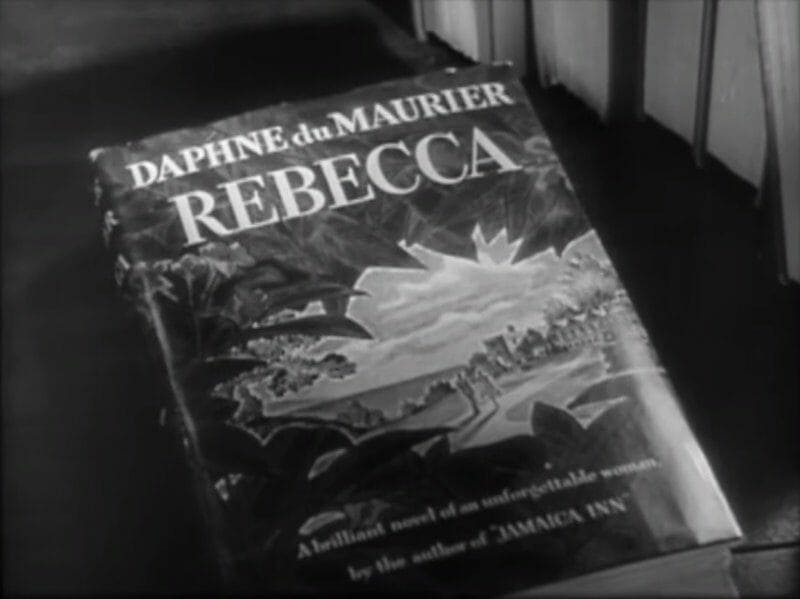
Referencing in Dissertations
When it came to incorporating such sources into the main body of my essay, I was initially wary about how to cite them, typically having found referencing digital resources a confusing process. Luckily for me, Gale Reference Complete has a citation tool, making it incredibly easy for me to reference the sources I found. This ensured that my footnotes were both accurate and consistent. Referencing in dissertations can be tricky to figure out, especially as different departments expect different referencing styles. As a Joint Honours student, I know the struggles of adapting to different formatting styles, so using the citation tool made my life a lot easier!
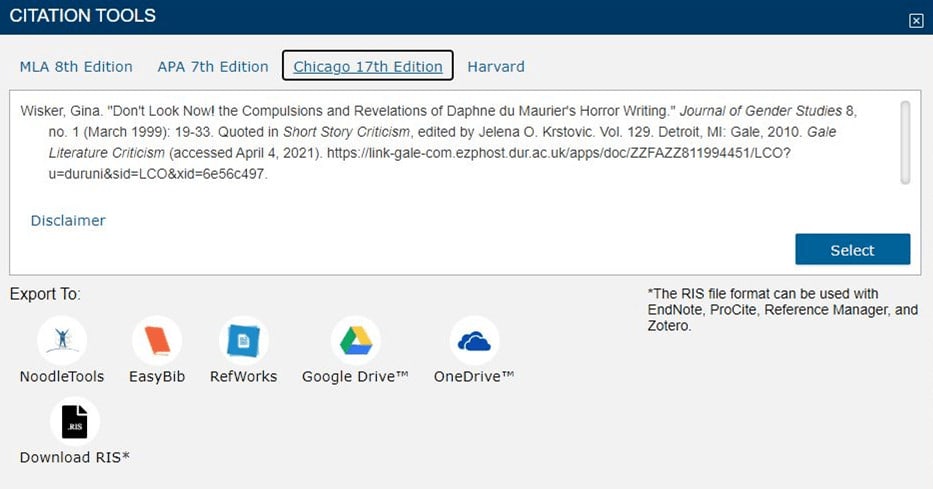
Once I had the articles and their citations, I got to work planning out my dissertation. Whilst this was an intimidating task, the speed and ease with which I had been able to find relevant materials meant I was well organised and confident in my ideas. The Gale Literature component of Gale Reference Complete was therefore invaluable to my research methodology and made the whole process a lot more straightforward and efficient. Digital resources have been central to the way in which universities are teaching throughout the course of the pandemic, and Gale Reference Complete is the perfect solution for any student who wants to find useful and relevant articles that are available every hour of every day.
If you enjoyed reading about how Gale Literature helped my dissertation research, you may like to check out pieces written by other student ambassadors such as Top Tips to Ace Your Dissertation and Exploring Gale Reference Complete.
Blog post cover image citation: Image by Haneen Krimly from Unsplash.

